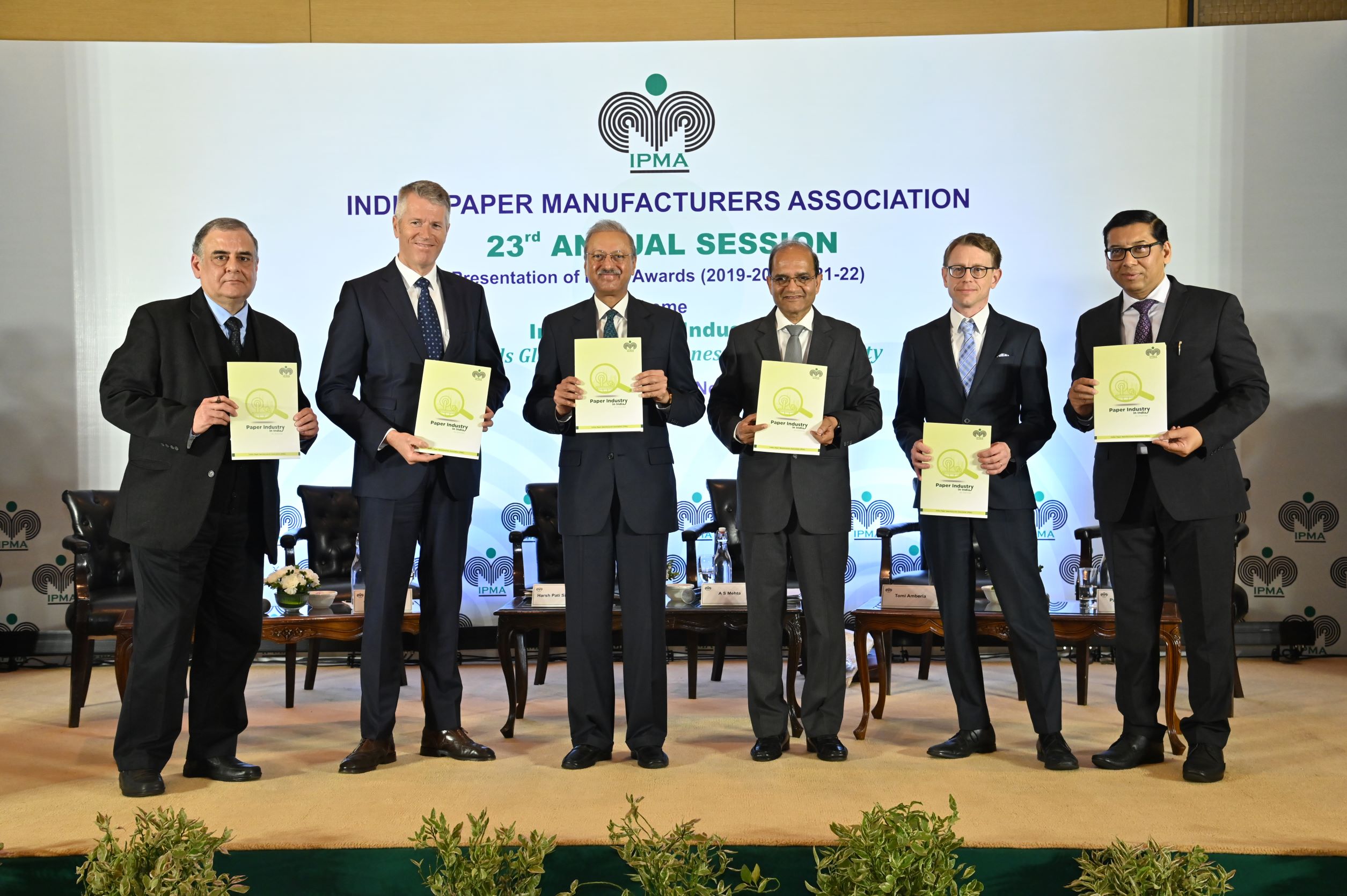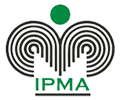Events
23rd Annual Session of IPMA at New Delhi

The 23rd Annual Session of IPMA was held in New Delhi on 13th Jan 2023 at New Delhi with participation of a large number of industry leaders and delegates from all across the country and experts from abroad.
After subsiding of Covid, the demand for paper has made a robust recovery in the ongoing financial year and has overtaken pre-pandemic levels. In view of the large potential for growth aided by a growing economy, Paper Industry is expected to witness demand growth in sync with the projected economic growth of 6-8% per annum, said Mr A S Mehta, the outgoing President IPMA.
However, for consistent growth of the industry, raw material security is a must. Currently the cost of procuring wood in India is upwards of USD 100 per tonne while the same in other competing countries is USD 60 per tonne. Being cost competitive is a prerequisite to emerge as world leaders and for that raw material security needs to be strengthened, added Mr Mehta.
Paper Industry driven agroforestry initiative being undertaken in collaboration with over 5 lakh farmers needs to be augmented to a large extent to meet the current and future needs of the industry for pulpwood. So far, with the efforts of wood-based paper mills, 12 lakh hectares has been brought under agro / farm forestry across the country, with significant environmental benefits.
Chief Guest Mr Harsh Pati Singhania, Vice Chairman & Managing Director, JK Paper Ltd, underlined the need for co-opting other wood based industries such as plywood, furniture manufacturers, construction industry for agro / farm forestry.
While Paper Industry handholds the farmers all through the gestation period, supporting them with high quality clonal saplings and technical extension services, other wood based industries have not been coming forward in the developmental agenda. In all fairness, these industries should also join hands with paper mills in increasing plantations which will help in the greening of India and lead to rural employment, apart from securing supply of raw material for all wood-based industries, said Mr Singhania.
We need to increase the recovery rate of wastepaper in the country through source segregation, effective collection and utilisation of wastepaper. We should use the term ‘recovered paper’ rather than ‘wastepaper’ to send across a positive message. Paper can be recycled 5-7 times, which few other products can match, he added.
In terms of technology and practices, the Paper Industry in India is globally competitive. The industry has managed to bring down its energy consumption by about 20% in the last five years. Integrated paper mills in India generate over 40% of the power they use by utilising the biomass from the pulping process. Earlier the industry used to consume 200 cubic metres of water to produce a tonne of paper. Now, the integrated mills have reduced that to under 50 cubic metres, according to Mr. Mehta.
Two international experts, Mr. Andreas Endters, President & CEO, Voith Paper GmbH, Germany; and Mr. Tomi Amberla, Director, AFRY Management Consulting, Finland, made the keynote presentations on “Paper Industry: Trends & Future Outlook – Global & India”.
